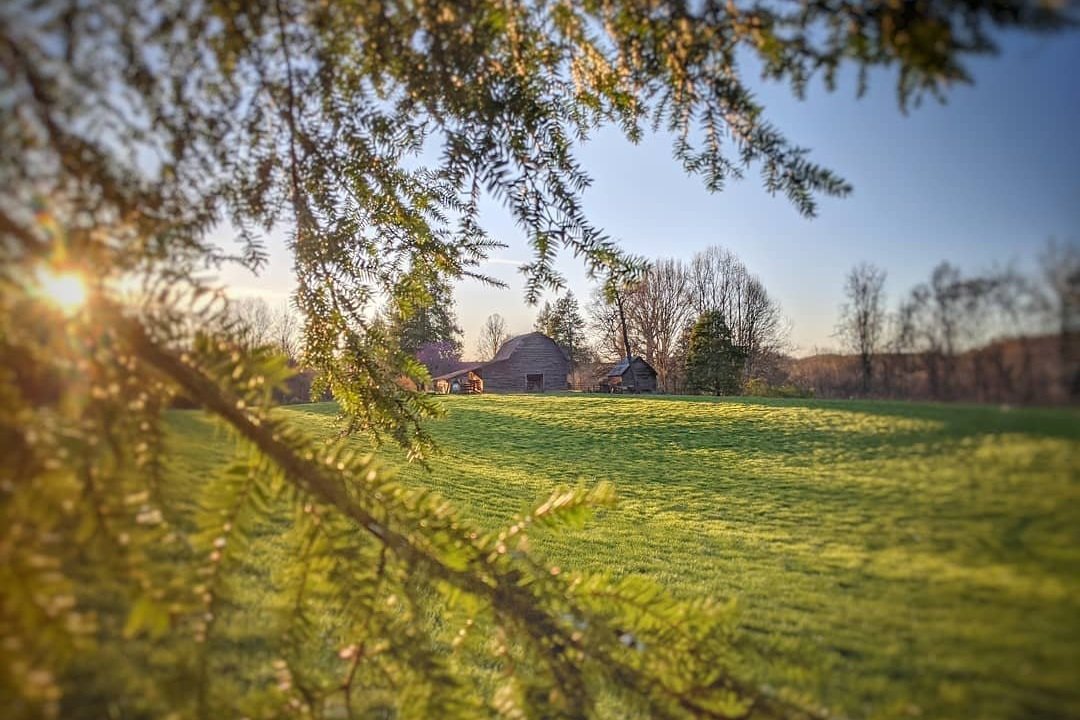River Rock Wildlife Rehab is a Home-Away-from-Home for Animals
Photos Courtesy of River Rock Wildlife Rehab
By Meg Hale Brunton
Hannah Simmonds, Founder and President of River Rock Wildlife Rehab, was born and raised in Connelly Springs, North Carolina. During her childhood, she definitely developed a love of nature, and the abundant wildlife in her area. “I was always interested in animals,” she shares, continuing that she aspired to become a veterinarian, but instead earned her Associate’s degree in Environmental Sciences.
After getting married, Hannah moved with her husband to England where the couple remained for five years. Arguing that the weather was considerably better in WNC, she convinced her husband to return with her to Catawba County in 2005. In 2015, they bought a 20-acre property with a barn, a river, and plenty of forest.
One night, their dog alerted them to a baby raccoon that was alone near the river’s edge. Hannah brought it inside with her to try to save it. She made a few phone calls, and did web searches to find someone who rescued wild animals, and found no one. So, she endeavored to raise the raccoon herself. “I just enjoyed every minute of it,” Hannah recalls of bringing up the raccoon, whom she named Ziggy. When she tried to get Ziggy any medical care, or vaccinations, she found herself hitting a brick wall. “I decided I needed to get my license.”
Once Ziggy was grown and healthy, Hannah released him into the wild. After that, she began taking classes on caring for wildlife, in order to receive her permit from the NC Wildlife Resource Commission to take in other animals. She also did volunteer work with other animal rehab facilities. In 2017, she received nonprofit status and opened up River Rock Wildlife Rehab, a sanctuary dedicated to the rescue, rehabilitation and release of wild animals. “We just started and we want to help as much as we can,” Hannah says.
River Rock Wildlife Rehab takes in animals who are sick, injured, orphaned, or in need of some other level of care. According to Hannah, most of their work is done with bunnies, squirrels, skunks, raccoons, opossum, foxes, and deer. They are not permitted to take in birds, because birds are federally-regulated. The rehab is also home to horses, pigs, emus, cats, dogs, and their ambassador animal: Victor the ball python.
Hannah says she begins every day (after multiple cups of coffee) by feeding the ‘tinies’ that she has in an incubator. She says that seeing the little ones fall asleep in her hand with full bellies is her favorite part of the job. Then, she checks on her assortment of patients and residents out in the barn. She spends the main part of her day, dealing with calls, assessments and in-takes. People contact her about an animal in need and either bring the animal to her, or she (or a volunteer) comes to fetch it. From there, she figures out the level of care the animal needs, sets up an enclosure, and begins treatment. When the animal is well, Hannah does what she calls ‘a soft release’ in which the animal is released onto an enclosed part of her property. “I keep feeding them until they feel comfortable,” she explains. “So, they know they have a home to come to if they need to.”
Hannah admits she has a love/hate relationship with releasing the animals who have been under her care. “It’s heartbreaking raising them from babies then letting them go, but very rewarding,” she explains. Sometimes, Hannah says, the animals come back for a visit, or she’ll see them out in the wild. Often, she can recognize them from their markings, or behaviors. Or sometimes she will make one of her call-noises and the animal will respond to her. “It’s such a heart-warming feeling.”
Hannah says she absolutely loves what she does, but acknowledges that it is financially-challenging to run her business, since River Rock is entirely funded by donations, or out-of-pocket. Hannah even took a third shift job, working with dementia patients, just to make ends meet. With money being tight, and the need being constant, Hannah is conscious of making sure she doesn’t get overwhelmed. “I’ve been to that burn-out stage before and I know not to get there again,” she explains, adding that she knows precisely how many skunks she can handle at a given time. “I learned my limits; I’m trying to stick with those and still educate others on how to coexist with wildlife.”
In 2019, Hannah was diagnosed with breast cancer, and required multiple surgeries over the following year. She was worried that she would have to close the rehab, but found that support from her volunteers enabled them to keep the facility up and running. Recently, Hannah had her final surgery, is now cancer-free, and thrilled to be back working with her animals, particularly baby squirrels. “They can heal with me. I can watch them grow so they can take my mind off it,” she says of the squirrels. “They are so precious. They seem to be my calming animal.”
Besides maintaining and growing the business, education is paramount in Hannah’s plan, both for herself and others. “I try to stay up-to-date with what’s going on in the wildlife world,” she says, citing that she attends a wildlife symposium in Raleigh every year. She also has several apprentices who are anxious to work with animals, especially baby ones. “I want to get more education and more rehabbers out there, get people interested in wildlife.”
To make a donation to River Rock Wildlife Rehab, or to volunteer today, visit their website: https://www.riverrockwildlife.com/


